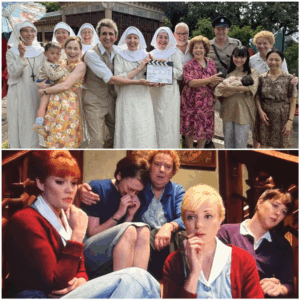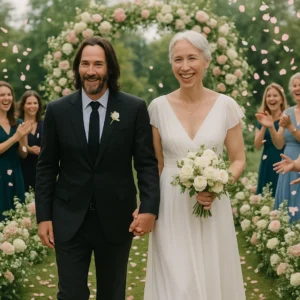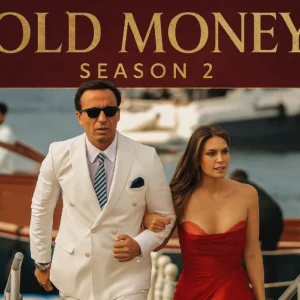A fiery segment on Fox News’ Hannity, aired on April 15, 2025, and titled “Pam Bondi: Every liberal journalist who called deported alleged gang member a ‘Maryland man’ should be apologizing,” has thrust the controversial deportation of Kilmar Ábrego García, a Maryland resident, back into the national spotlight. U.S. Attorney General Pam Bondi’s blunt remarks, accusing liberal media of mischaracterizing Ábrego García as a “Maryland man” rather than an alleged MS-13 gang member, have deepened divisions over the Trump administration’s immigration policies. The case, marked by a mistaken deportation to El Salvador’s notorious Terrorism Confinement Center (Cecot), has sparked legal battles, diplomatic tensions, and a public outcry, raising critical questions about due process and media responsibility.
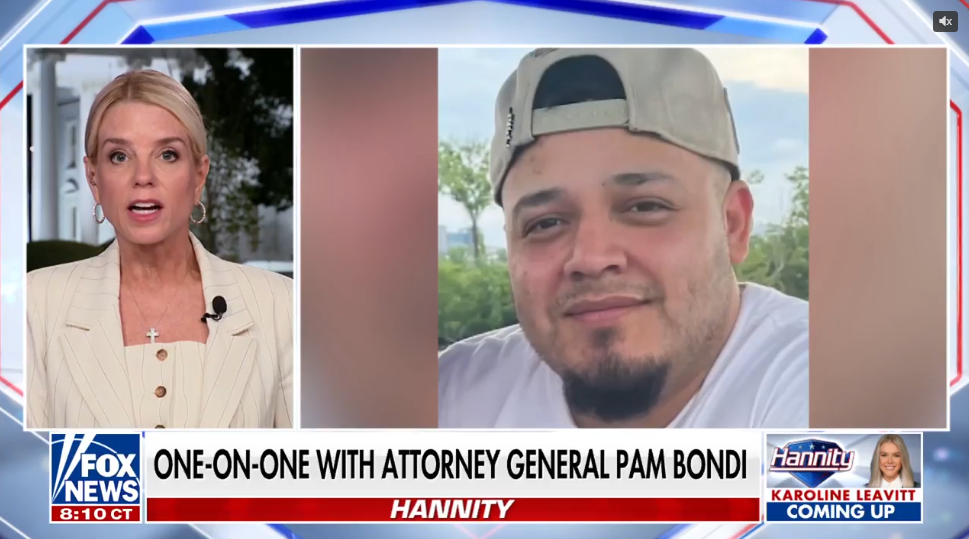
The Deportation That Shocked Maryland
Kilmar Ábrego García, a 29-year-old Salvadoran immigrant, was deported to El Salvador on March 15, 2025, despite a 2019 court order granting him “withholding of removal” status, which protected him from being sent back due to risks of persecution by local gangs. The U.S. government later admitted his deportation was an “administrative error,” landing him in Cecot, a maximum-security prison known for housing alleged gang members and criticized for human rights abuses. Ábrego García, who lived legally in Maryland with his U.S. citizen wife, Jennifer Vasquez Sura, and their three children, was among 261 migrants—238 Venezuelans and 23 Salvadorans—sent to Cecot under a $6 million deal between the Trump administration and El Salvador’s President Nayib Bukele.
The agreement, which pays El Salvador $20,000 per deportee annually, targets alleged members of gangs like MS-13 and Tren de Aragua, designated as “foreign terrorist organizations” by the administration. However, Ábrego García’s case has drawn intense scrutiny because he has no criminal record in the U.S. or El Salvador, and his alleged MS-13 affiliation stems from a single, unsubstantiated 2019 allegation tied to his clothing—a sweatshirt with money imagery covering presidents’ faces. U.S. District Judge Paula Xinis called the evidence “flimsy,” noting the 2019 immigration judge’s ruling that Ábrego García faced credible persecution risks in El Salvador.
Bondi’s Remarks Stir Controversy
In the Hannity segment, Attorney General Bondi expressed frustration with media outlets labeling Ábrego García a “Maryland man,” arguing it downplays his alleged gang ties. “I’m sick of the liberal media calling him a ‘Maryland man.’ He’s not a ‘Maryland man.’ He’s from El Salvador and part of one of the most violent gangs in our country,” Bondi said, urging journalists to apologize for their coverage. Her comments, echoed by posts on X from users like @agbear71 and @FishmanLevine, aligned with the White House’s narrative, with Press Secretary Karoline Leavitt and Vice President JD Vance previously citing the sweatshirt as a “known MS-13 symbol.”
Bondi’s remarks, however, have ignited a firestorm. Critics, including Ábrego García’s legal team, argue that her statements misrepresent the facts and inflame public sentiment against a man with no proven gang affiliation. “This is a dangerous narrative built on a single, unverified claim,” said attorney Benjamin Osorio. Legal experts, such as Nicole Hallett, warn that such rhetoric risks undermining due process, particularly when courts have ruled the deportation illegal. The Supreme Court’s liberal justices—Sonia Sotomayor, Elena Kagan, and Ketanji Brown Jackson—have cautioned that the administration’s stance could set a precedent for deporting anyone, including U.S. citizens, without recourse.
A Legal and Diplomatic Quagmire
The legal battle over Ábrego García’s deportation has escalated rapidly. On April 4, Judge Xinis ordered the administration to return him to the U.S. by April 7, calling the deportation “an illegal act” and threatening contempt if unmet. The Supreme Court unanimously upheld her order on April 10, directing the government to “facilitate” his return while respecting executive authority in foreign affairs. Yet, the administration claims it lacks the power to extract Ábrego García from El Salvador’s custody, pointing to Bukele’s refusal during a Monday Oval Office meeting. “How can I return him to the United States? I smuggle him or what?” Bukele said, labeling Ábrego García a “terrorist.”
In a Tuesday hearing, Xinis dismissed the administration’s excuses as “nonresponsive,” ordering daily updates on efforts to retrieve Ábrego García and initiating a two-week “expedited discovery” process to probe potential bad faith. Ábrego García’s lawyers argue that the U.S. can leverage its $6 million deal to secure his release, accusing Trump and Bukele of political motives. “They sent him there; they can bring him back,” said attorney Andrew Rossman. The case has also drawn congressional attention, with Senator Chris Van Hollen announcing plans to travel to El Salvador to check on Ábrego García’s condition, calling the deportation a “stain on our values.”
A Family’s Heartbreak
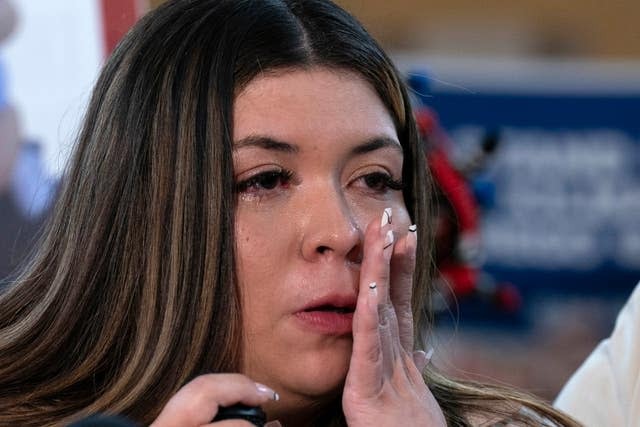
Ábrego García’s deportation has shattered his family. Vasquez Sura, who identified her husband in a Salvadoran government photo at Cecot, described the moment as devastating: “I broke down because I knew it was him. I’m scared for his life.” She recounted his arrest on March 12 while driving with their 5-year-old disabled son, followed by his transfer through detention centers in Louisiana and Texas. Since his deportation, she has had no contact with him, fearing for his safety in a prison known for harsh conditions, including windowless cells and alleged torture.
Vasquez Sura, supported by Maryland faith leaders and community advocates, has become a vocal advocate for her husband’s return. A lawsuit filed by the family accuses the Department of Homeland Security and ICE of knowingly deporting Ábrego García to a facility with documented abuses, despite his protected status. “My children need their father,” she said in a statement, vowing to continue fighting. Her emotional plea during a recent White House briefing, alongside Leavitt, underscored the human toll of the case, resonating with viewers and amplifying calls for justice.
Media and Public Reaction
Bondi’s call for media apologies has polarized public discourse. On X, users like @SCRIBEMOON amplified her remarks, praising her for challenging liberal outlets, while others condemned the administration’s narrative. @Ccangelsing called the situation “so sad & so wrong,” reflecting sympathy for Ábrego García’s family. Media coverage has been split, with outlets like BBC News and The Washington Post emphasizing the legal and humanitarian dimensions, while Fox News has framed Ábrego García as a gang member, aligning with Bondi’s stance.
The Hannity segment, available on FoxNews.com, has fueled debate about media responsibility. Critics argue that Bondi’s remarks oversimplify a complex case, ignoring court rulings and Ábrego García’s lack of criminal history. “Labeling him a gang member based on a sweatshirt is reckless,” said Amelia Wilson of the Immigration Justice Clinic at Pace University. Others, however, defend Bondi, arguing that media outlets have downplayed potential security risks by focusing on Ábrego García’s Maryland residency.
Diplomatic and Policy Implications
The controversy has strained U.S.-El Salvador relations. Bukele, praised by Trump for accepting deportees, benefits financially from the deal, which he claims will make El Salvador’s prison system self-sufficient. His refusal to release Ábrego García, however, has complicated diplomacy. Trump’s endorsement of Bukele’s stance, coupled with suggestions to deport U.S. citizens to foreign prisons, has alarmed legal experts. A “60 Minutes” investigation revealed that 75% of Venezuelans deported to Cecot had no criminal records, raising concerns about due process.
The deportation is part of a broader Trump administration campaign using the 1798 Alien Enemies Act to remove alleged gang members with minimal oversight. Since January, over 200 migrants have been sent to Cecot, often based on unverified allegations like tattoos or clothing. Advocates warn that such policies target vulnerable communities, with deportees often lacking legal recourse. “This case exposes systemic flaws,” said Wilson, calling for reforms to protect immigrants’ rights.
The Road Ahead
Ábrego García remains in Cecot, his fate uncertain as legal proceedings unfold. Judge Xinis’s upcoming hearings will scrutinize the administration’s compliance, while the Supreme Court may need to clarify its ruling if tensions persist. For Vasquez Sura and her children, the fight is personal. “We will not stop until Kilmar is home,” she said, addressing her husband directly.
The case underscores the complexities of immigration enforcement, the risks of international agreements, and the power of media narratives. As Bondi’s remarks continue to reverberate, Ábrego García’s story serves as a stark reminder of the human cost of policy missteps and the urgent need for accountability. Whether the administration can navigate the legal and diplomatic challenges to bring him home remains to be seen, but the nation watches closely, grappling with questions of justice and compassion.
